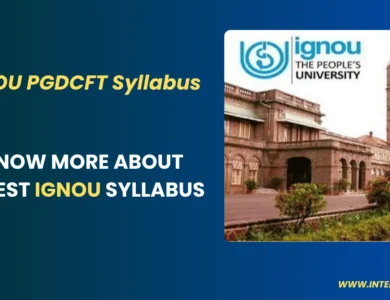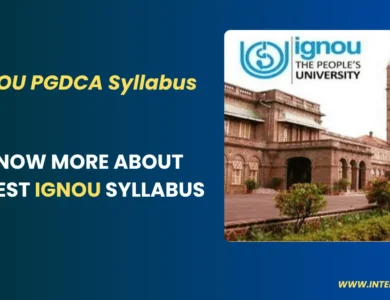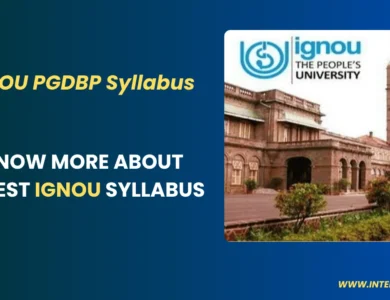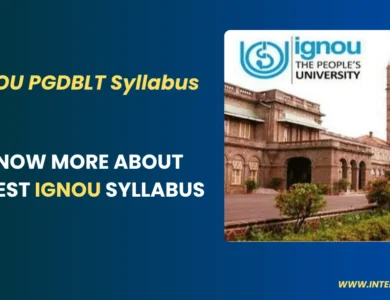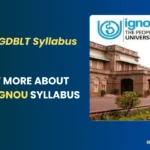IGNOU DSCDM Syllabus 2025
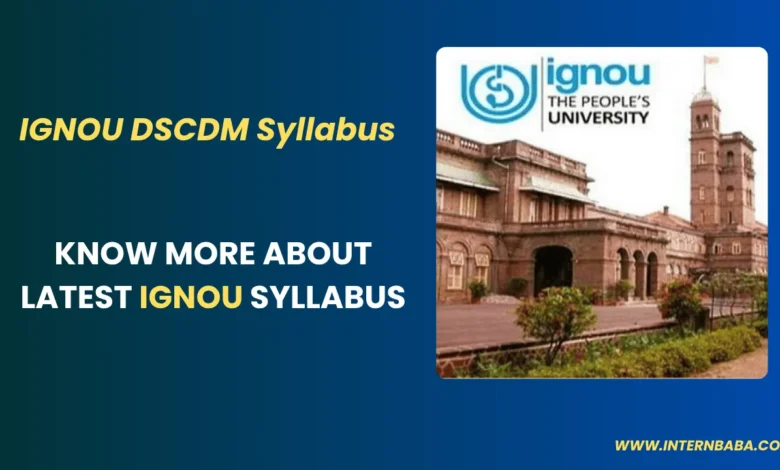
If you are planning to pursue the Diploma in Smart City Development and Management (DSCDM) from IGNOU in 2025, having a complete understanding of the syllabus is your first step toward success. Whether you’re a fresher exploring career options or a working professional aiming to upskill, IGNOU’s DSCDM program is designed to cater to the evolving needs of urban development and smart technologies. In this detailed guide, you’ll find the complete syllabus structure, credit system, course list, learning objectives, and additional support to help you prepare for the 2025 academic session. This article is written to help students make informed decisions regarding subject selection, academic planning, and certification requirements.
What is IGNOU DSCDM Program?
The DSCDM program stands for Diploma in Smart City Development and Management. It is a one-year diploma program offered by IGNOU (Indira Gandhi National Open University), aimed at equipping students with the skills and knowledge required for developing and managing smart cities. The program is structured to address the growing demand for skilled professionals in urban planning, sustainable infrastructure, governance, and smart technologies.
By enrolling in this program, students get exposure to key topics such as urban infrastructure, energy systems, smart transportation, cyber security in city systems, and public governance. The course is highly relevant in today’s scenario where urbanization and sustainability are at the forefront of development discussions.
IGNOU DSCDM 2025 Program Highlights
| Feature | Details |
|---|---|
| Name of the Program | Diploma in Smart City Development and Management |
| Duration | 1 Year (Annual Exam System) |
| Total Credits Required | 32 Credits |
| Program Category | IGNOU DSCDM |
| Course Type | Includes both compulsory and project-based courses |
IGNOU DSCDM Syllabus 2025: Subject-wise Credit Structure
Below is the detailed breakdown of the course structure for IGNOU’s DSCDM 2025 batch. Each course is assigned a specific number of credits contributing to the total 32 credits required for certification.
| Course Code | Course Title | Credits |
| MIO-01 | Introduction to Smart Regions: Smart Cities and Smart Villages | 4 |
| MIO-02 | Smart Technologies (Hardware and Software) | 4 |
| MIO-03 | Smart Urban Energy Systems and Smart Transportation System | 6 |
| MIO-04 | Smart Cities: Health, Education, Governance & Cyber Security | 6 |
| MIO-05 | Smart Cities: Safe Water, Sanitation and Sustainability | 4 |
| MIOP-01 | Project | 8 |
| Total | 32 |
These courses aim to provide comprehensive coverage of all major areas essential to planning and executing smart city projects.
IGNOU DSCDM Credit System Explained
IGNOU has implemented a credit-based evaluation system for its DSCDM program. This system ensures structured learning while allowing students the flexibility to pace their education. Here’s how it works:
- Total Required Credits: Students must complete 32 credits to earn the DSCDM diploma.
- Credit Allocation: Each subject has designated credit points. These range from 4 to 8 credits depending on the complexity and workload.
- Credit Earning: Credits are earned only after successful completion (passing) of the respective subject.
- Project Work: A major component, the 8-credit project course (MIOP-01), demands practical application of the knowledge gained.
This system makes academic planning easier and ensures that students understand the workload associated with each course.
Elective & Compulsory Courses
For the academic year 2025, all courses listed in the DSCDM syllabus are compulsory. IGNOU has not provided elective options for this diploma. However, course content is designed to be inclusive of interdisciplinary aspects of smart city management, so students gain exposure to a wide range of topics even without electives.
IGNOU frequently revises its syllabus based on new trends and requirements, so future iterations may include elective options to offer even more specialized learning paths.
Benefits of Pursuing IGNOU DSCDM in 2025
- UGC-Recognized Qualification: This diploma is accepted in both government and private sectors, adding credibility to your resume.
- Flexible Learning Environment: With distance education and online resources, students can learn at their own pace.
- Industry-Relevant Curriculum: Emphasis is on real-world problems and practical solutions.
- Affordable Fee Structure: Compared to private institutions, IGNOU offers a cost-effective program.
- Skill Enhancement: Covers multi-disciplinary areas such as urban governance, sustainability, and smart tech integration.
- Career Opportunities: Opens doors in sectors like urban planning, IT consultancy, infrastructure development, and municipal governance.
Tips for Students to Maximize Learning
- Create a Study Plan: Dedicate weekly hours based on credit load. For instance, allocate more time to 6 or 8 credit subjects.
- Use IGNOU Study Materials: Make use of digital and printed materials provided by the university.
- Join Study Groups: Collaborative learning helps in solving doubts and improves concept clarity.
- Engage with Mentors: Seek guidance from tutors or academic counsellors assigned by your regional centre.
- Start the Project Early: Don’t wait until the final months; early planning and research will ensure higher project quality.
Future Scope After Completing IGNOU DSCDM
Graduates of the DSCDM program can explore various roles such as:
- Urban Planning Associate
- Smart Technology Analyst
- Project Coordinator for Infrastructure Development
- Policy Advisor for Government Programs
- Sustainability Consultant
Moreover, this diploma can serve as a stepping stone for further studies in urban development, public administration, or smart systems engineering.
Frequently Asked Questions (FAQs)
Q1. What is the total duration of the IGNOU DSCDM program?
The DSCDM program is of one year duration and follows the annual exam system.
Q2. Are there any elective courses in the DSCDM 2025 syllabus?
No, as per the current syllabus, all courses are compulsory for successful completion.
Q3. How many credits are required to complete the program?
A total of 32 credits are required to be eligible for the DSCDM diploma.
Q4. Can working professionals pursue this program?
Yes, the program is flexible and designed for both students and professionals.
Q5. What is included in the MIOP-01 project course?
The project involves real-world applications of smart city concepts. This may include field surveys, technical analysis, or community-based case studies.
Q6. Is DSCDM offered in Hindi or other regional languages?
Currently, the primary medium of instruction is English, though IGNOU may provide support materials in Hindi for select subjects.
Q7. How do I register for the DSCDM program?
Students can register online through the IGNOU Samarth portal or by visiting their nearest IGNOU Regional Centre.
For the most accurate and updated information, always refer to IGNOU’s official website or consult with your regional centre. Stay ahead by staying informed and take full advantage of the structured and flexible DSCDM diploma in 2025.


